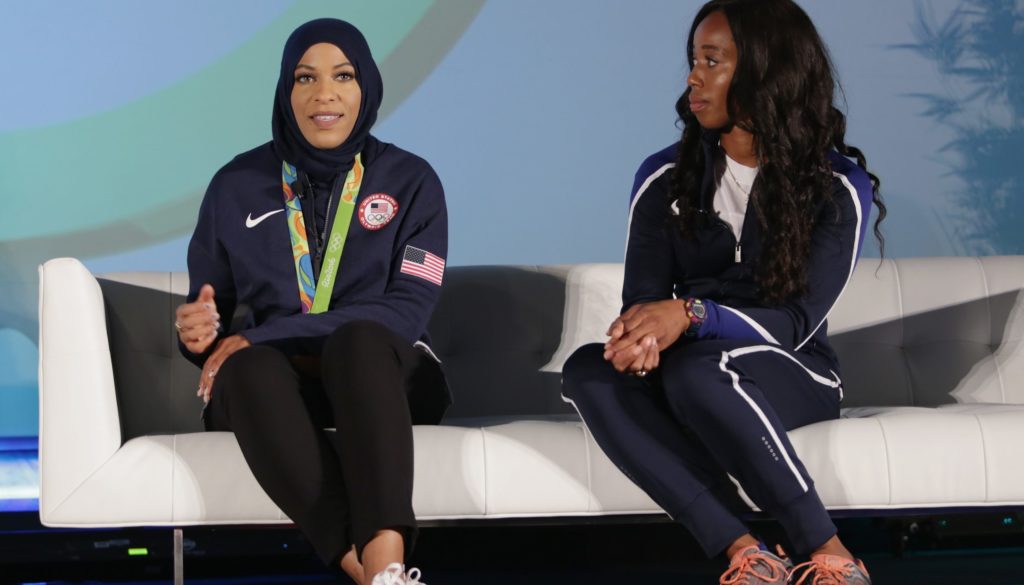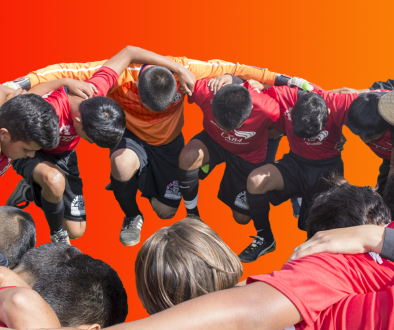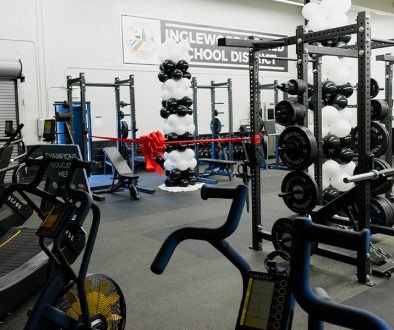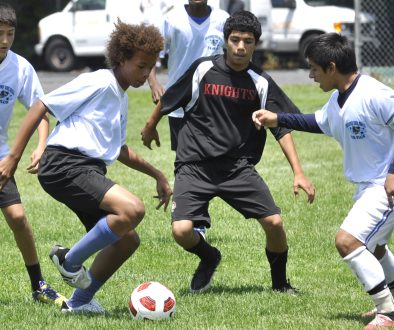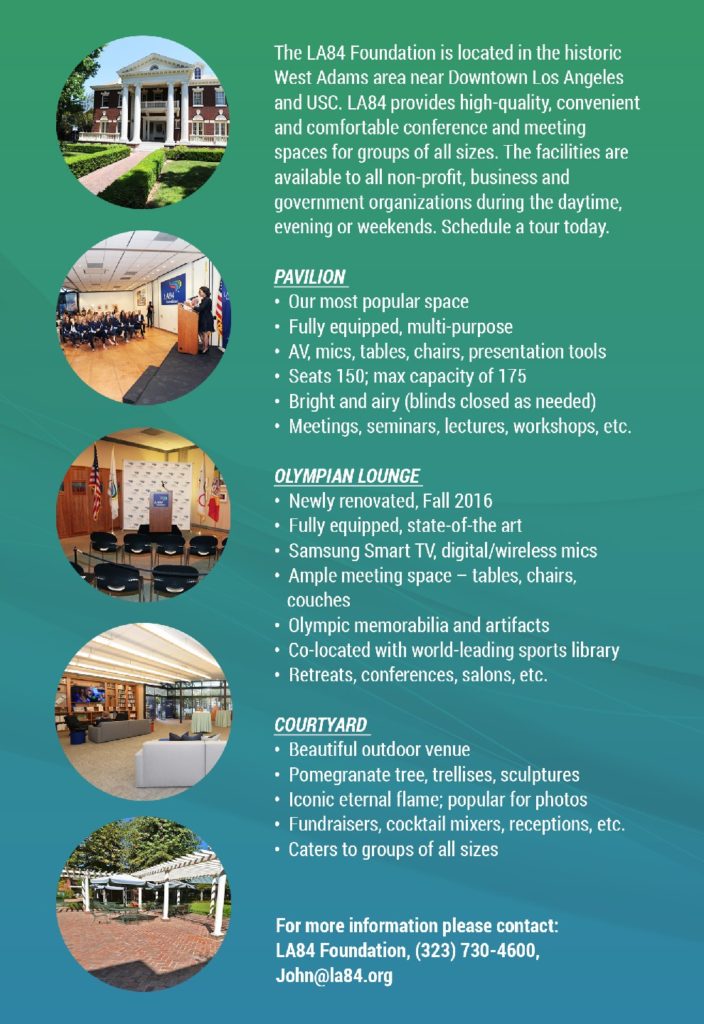LA84 Summit Panel Recap: Stories from the Rio Olympics + How They Began
Olympians and Paralympians are at the pinnacle of their sports, and they didn’t reach such heights by accident. At the 2016 LA84 Summit on October 27, 2016, four competitors from the 2016 Rio Games gave us an insight into their Olympic journeys, what inspired them to pursue their sport, and imparted wisdom and advice applicable across not only sport, but life. See the full video of the panel below.
Striving for Excellence: Stories from the Rio Olympics + How They Began Panelists
Lex Gillette, 2016 Paralympian, Track & Field
Steven Lopez, Five-time Olympian, three-time medalist, Taekwondo
Ibtihaj Muhammad, 2016 Olympian, Fencing
Barbara Nwaba, 2016 Olympian, Track & Field
Interviewer: Julie Foudy, Founder, Julie Foudy Sports Leadership Academy, Television Analyst and Reporter for ABC/ESPN
Finding an Olympic Niche
Not every Olympic journey starts under the age of 10. For Nwaba and Muhammad, it took them well into their teens to discover the sport that has since taken them to the realm of the athletic elite. Both maintained how important it was not only for them to find their sport, but to test out a wide variety to know the sport they chose was truly the one for them.
Nwaba began her athletic career through LA’s Best, an LA84 grantee. “I started doing track and field programs for them [LA’s Best], but I was also exposed to volleyball, softball and soccer,” said Nwaba. That variety helped set the tone for the rest of my athletic career.
PANEL RECAP: The Impact of the Olympics on Youth Sports: LA84 + LA 2024 = Legacy Squared
For Muhammad, growing up as a Muslim-American donning a hijab sometimes limited the sports she was comfortable pursuing. Her mother saw fencing at a local high school when Muhammad was 12 and how the sport covered up most of one’s figure and was amenable to a hijab-wearing athlete. She wanted her daughter to try the sport once she started high school, and Muhammad’s level of skill really accelerated once she joined the Peter Westbrook Foundation at age 17.
“At first we literally had no idea what we were watching in fencing, but now I know I wouldn’t be where I am today without a nonprofit,” Muhammad said.
Playing it Forward
As they discussed their careers and accolades, the four athletes’ passion for using their Olympic notoriety to inspire current and future athletes alike shone brighter than their Olympic medals.
“Saying I believe in you,” Lopez said on the one phrase he believes has a transcendent effect on an aspiring athlete. “It’s very easy and very simple, but to touch someone and let them know that they believe in you, it’s one of the greatest things.” Gillette added on to that notion: “You want to have someone that shows that they believe in you. My high school teacher believing in me gave me that internal drive and tenacity, and I started to actually see where I wanted to go and who I wanted to become. When you say ‘I believe you’ and put actions behind it, it really gives kids life.”
Nwaba knows first-hand the impact of a coach’s unrequited belief. During her sophomore year running at UC Santa Barbara, her coach encouraged her to try the heptathlon in one meet, despite her never having participate in it. The rest is history. “I encourage them to try everything,” added Nwaba, who now coaches track & field herself. “Say yes to everything. Just give it a try.”
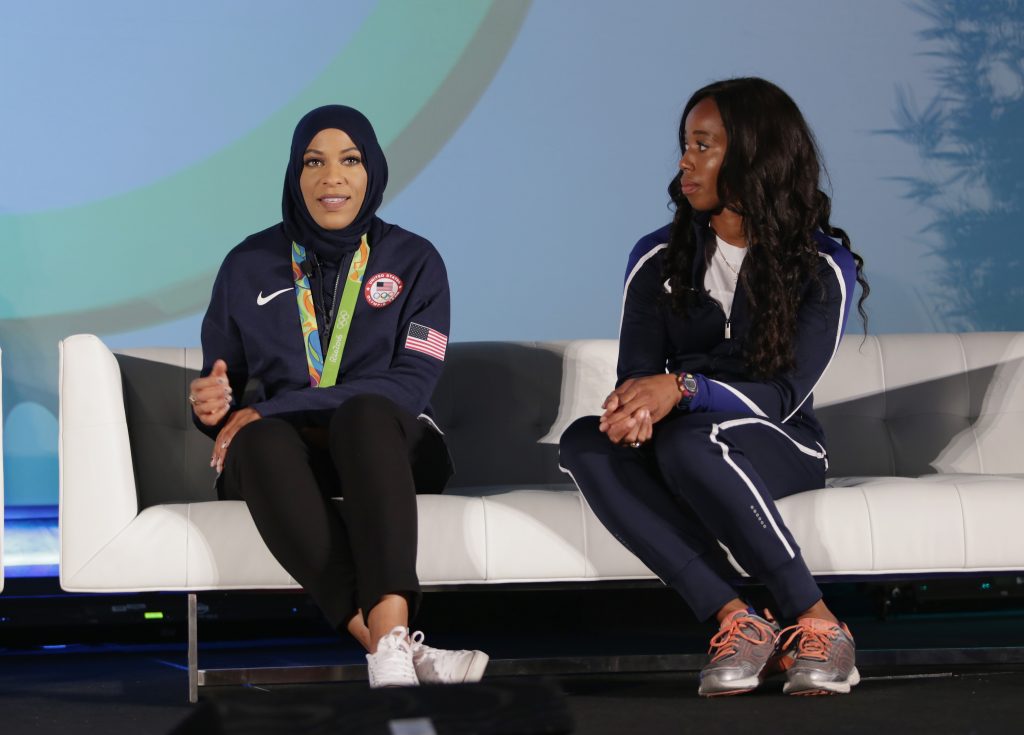
For Muhammad, her Olympic stature as the first Muslim-American to earn an Olympic medal wearing a hijab empowers her to inspire and motivate girls whose shoes she was in not too long ago. “Having girls see Muslim women involved in sports and things that are culturally out of the box for them kind of changes their orientation and how they view themselves,” she said.
PANEL RECAP: The Power of Girls Who Play
Don’t Take No for an Answer
Gillette wasn’t always one of the world’s premier Paralympic long jumpers. When he became blind as a child in North Carolina, at first he felt impaired by his disability. But as soon as he entered high school and met his first coach, it changed. Rather than holding himself out of recess, he dived right in. “As a freshman, we had to do a fitness test. One of the events was the standing long jump. I was top three in my school, and my teacher told me about the Paralympics and being able to represent my country and win medals and break records. That became my goal and my vision. I really locked in.”
Muhammad’s Olympic path also truly kicked into gear thanks to an external doubting of her ability. After not qualifying for the 2012 Games in London, Muhammad was with a friend when a little girl came up to her and said “Oh my gosh, are you the Olympic fencer?”
“Before I could say anything, My friend said to the little girl ‘she’s not an Olympian.’ That’s the first time I can remember that I made this conscious decision that I would try to make an Olympic team. From that moment for four years, I dedicated my life. I felt like I had to make the Olympic team for that little girl and my younger self. For all those moments people told me I couldn’t do things because I was a girl, because I was Muslim, because black people didn’t fence.”
The common thread among the athletes was not only gathering together to help play it forward for the young athletes of today, but also to show that Olympic dreams realize themselves in unique, but always-powerful ways. In the words of Muhammad: “Things that are meant for you will never miss you.”
See more from the Summit and the latest from LA84 here.
